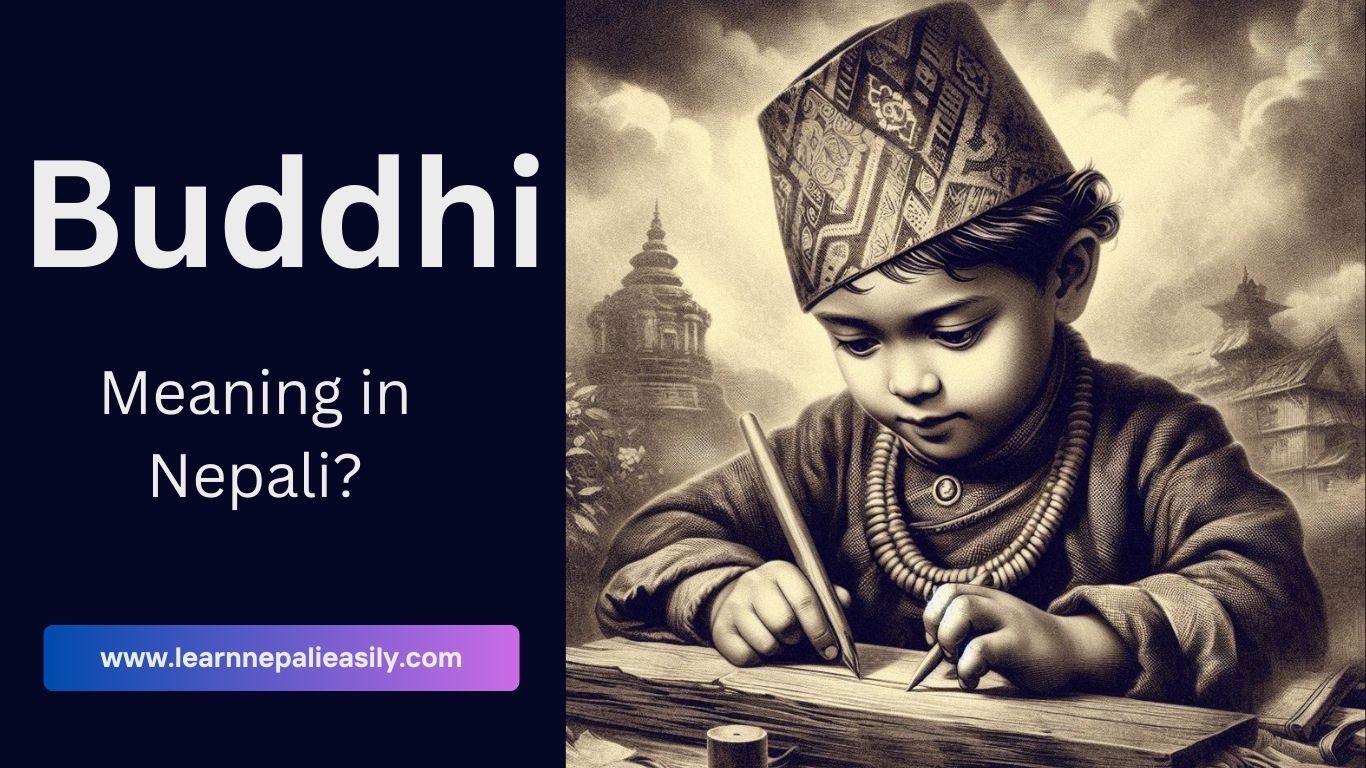The word “Buddhi” is widely used in Nepali culture and language. Understanding the cultural context and practical usage of this term can enrich your knowledge of the Nepali language.
Buddhi meaning in Nepali
In Nepali, “Buddhi” (बुद्धि) translates to intelligence, wisdom, or mental capability. It refers to the ability to think, reason, and make decisions. People often associate “Buddhi” with a person’s intellect or cleverness.
Cultural Significance of Buddhi
In Nepali culture, the concept of “Buddhi” is not just about academic knowledge but also about practical wisdom. It is considered a virtue that helps individuals navigate through life effectively. Phrases like “बुद्धि पुर्याउनु” (to use intelligence) highlight its importance in daily life.
Sentences Using “Buddhi”
Here are some examples of how to use “Buddhi” in sentences:
English: Use your intelligence to solve this problem.
Nepali: Yo samasya samadhan garnako lagi timro buddhi prayog gara. (यो समस्या समाधान गर्नको लागि तिम्रो बुद्धि प्रयोग गर।)
English: Wisdom comes with experience.
Nepali: Anubhavsanga buddhi aauncha. (अनुभवसँग बुद्धि आउँछ।)
English: You need wisdom to make the right decision.
Nepali: Thik nirnaya lina ko lagi timilai buddhi chahincha. (ठीक निर्णय लिनको लागि तिमीलाई बुद्धि चाहिन्छ।)
English: A person without wisdom cannot succeed.
Nepali: Buddhi nabhayeko manche safal huna sakdaina. (बुद्धि नभएको मान्छे सफल हुन सक्दैन।)
English: It is said that wisdom grows with age.
Nepali: Bhaninchha ki buddhi umersanga badhcha. (भनिन्छ कि बुद्धि उमेरसँग बढ्छ।)
English: Lack of wisdom can lead to big mistakes.
Nepali: Buddhiko kami le thulo galti huncha. (बुद्धिको कमीले ठूलो गल्ती हुन्छ।)
Conclusion
Understanding such words bridges cultural gaps and helps you connect deeper with the Nepali language and its people. So, let your Buddhi guide you in exploring more about this rich and beautiful language!

